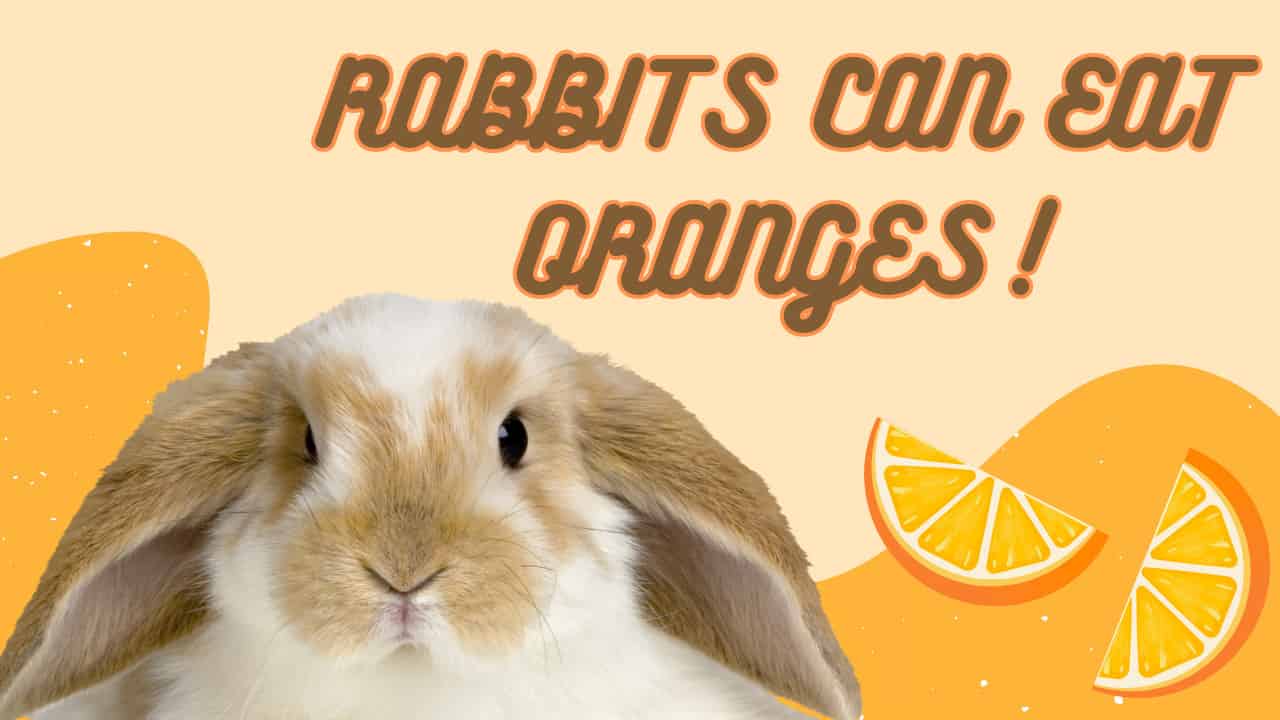Can rabbits eat oranges? The simple answer is yes, rabbits can eat oranges, but it’s not the best dietary choice. Due to the way a rabbit’s digestive system works, certain foods are essential components of a rabbit’s diet. If you plan to offer oranges, make sure you follow these five tips to prevent digestive issues.
1. Avoid Feeding Young Rabbits Oranges
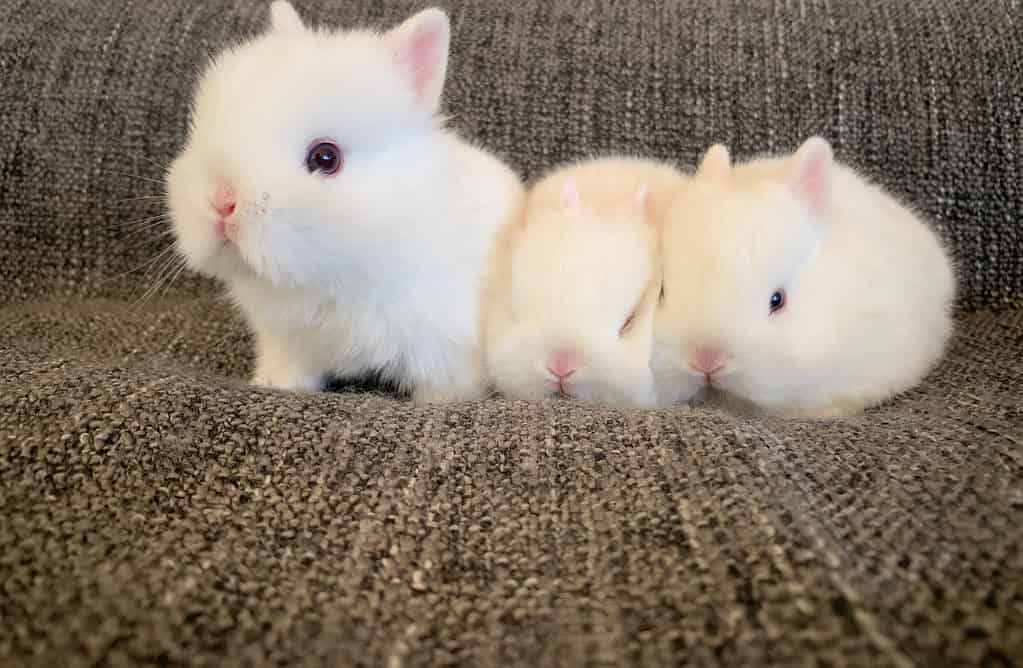
Don’t feed baby rabbits oranges due to the risk of diarrhea.
©JayOg/Shutterstock.com
Oligosaccharides are a carbohydrate chain with a specific number of sugar units. Those sugars include fructo-oligosaccharides, gluco-oligosaccharides, and galacto-oligosaccharides. Oligosaccharides benefit a rabbit’s health due to their prebiotic qualities, which keep the gut healthy. It’s a reason why rabbit food manufacturers add molasses to their rabbit foods and don’t find the addition causes weight gain.
Adult rabbits digest these carbohydrates, but young rabbits have a harder time. Research finds that gluco-oligosaccharides trigger diarrhea in young rabbits, which can cause dehydration. It’s best to limit orange slices to adult rabbits.
2. Offer Oranges in Moderation
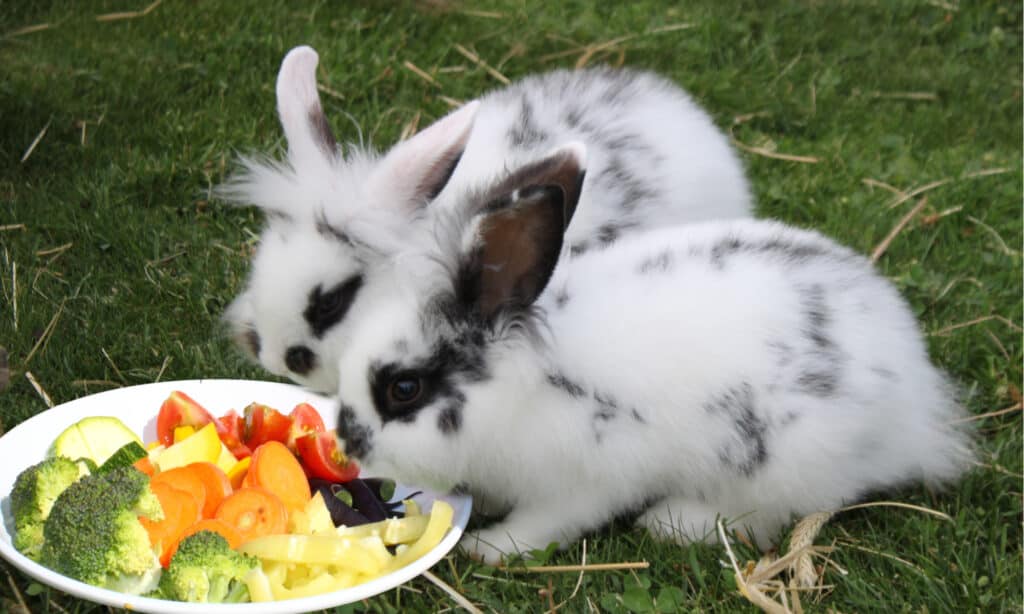
Keep portion sizes small to ensure your rabbit doesn’t eat too much fruit.
©Robirensi/Shutterstock.com
The digestive system of a rabbit is unique, and that trips up some pet owners. Rabbits are herbivores and seek foods that provide the energy they need. Pet rabbits don’t move around as much as rabbits in the wild, which increases the risk of obesity.
Oranges have a high sugar content. According to the USDA, a 100-gram serving of oranges contains 9.14 grams of sugar. Too many carbohydrates increase the chances of your rabbit becoming overweight.
Carbohydrate intake depends on the rabbit’s weight, level of activity, age, and health. Merck Veterinary Manual recommends the following guidelines for what you should feed your rabbit.
- 1.5 to 2% fat
- 12% protein with 9% of that digestible protein
- 14 to 20% fiber
- 40 to 45% digestible carbohydrates
- 50% to 60% total digestible nutrients
Your rabbit’s veterinarian is the best resource for helping guide you into the daily caloric intake for your rabbit. You need to make sure that your rabbit eats enough grass and hay and doesn’t fill up on oranges.
3. Remove the Seeds
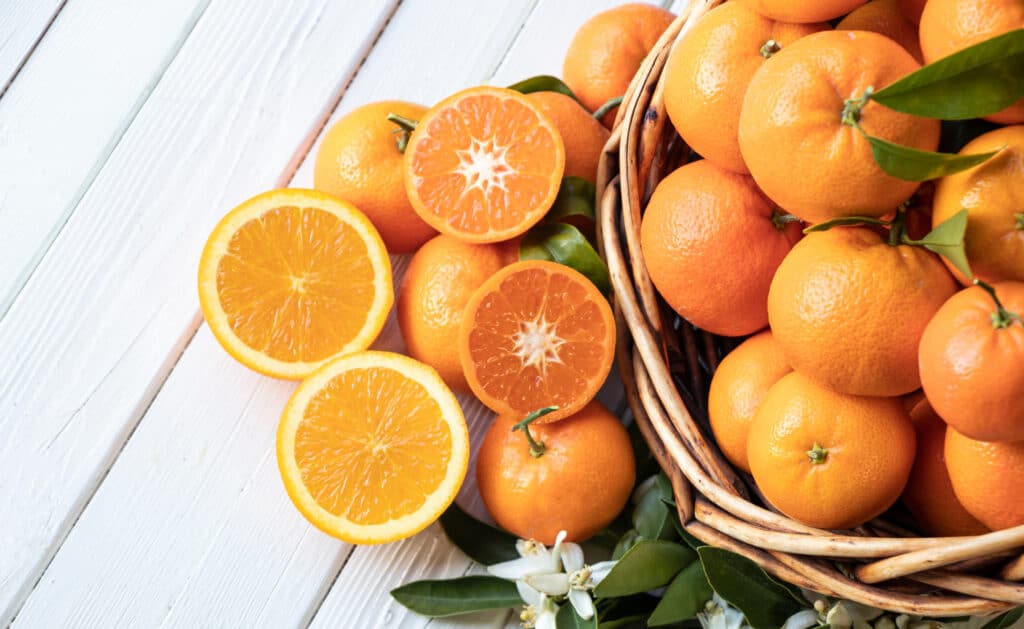
Orange seeds contain tiny amounts of anti-nutrients like cyanide, so stick to seedless oranges or remove all seeds first.
©PradaBrown/Shutterstock.com
Orange seeds contain anti-nutrients like nitrate, oxalate, and even cyanide. These substances are all present in tiny amounts and, therefore, do not raise any concerns in humans.
Cyanide, heavy metals, and other toxins occur naturally in the soil due to pollution, chemical insecticides, and weed control products. Trace amounts of toxins enter grasses, fruits, and vegetables through the soil they grow in and water they absorb.
Rabbits are smaller than people. It’s best to be cautious and stick to seedless oranges or remove the seeds before feeding oranges to your rabbit. It’s also a reason why feeding grass from your lawn isn’t recommended. You may not use chemicals, but your neighbor might.
4. Provide Plenty of Fresh Water

Rabbits need to stay hydrated to digest foods properly and avoid constipation.
©Tarasyuk Igor/Shutterstock.com
Rabbits require more water than your dog or cat does. Merck Veterinary Manual recommends 120 milliliters per kilogram of body weight, which breaks down to about 2.02 ounces per pound. Your rabbit must have plenty of fresh water. With their high water content of 80% to 89%, oranges help keep a rabbit hydrated, but it shouldn’t be the only way to stay hydrated.
5. Make Quality Hay and Grass the Main Component of a Rabbit’s Diet
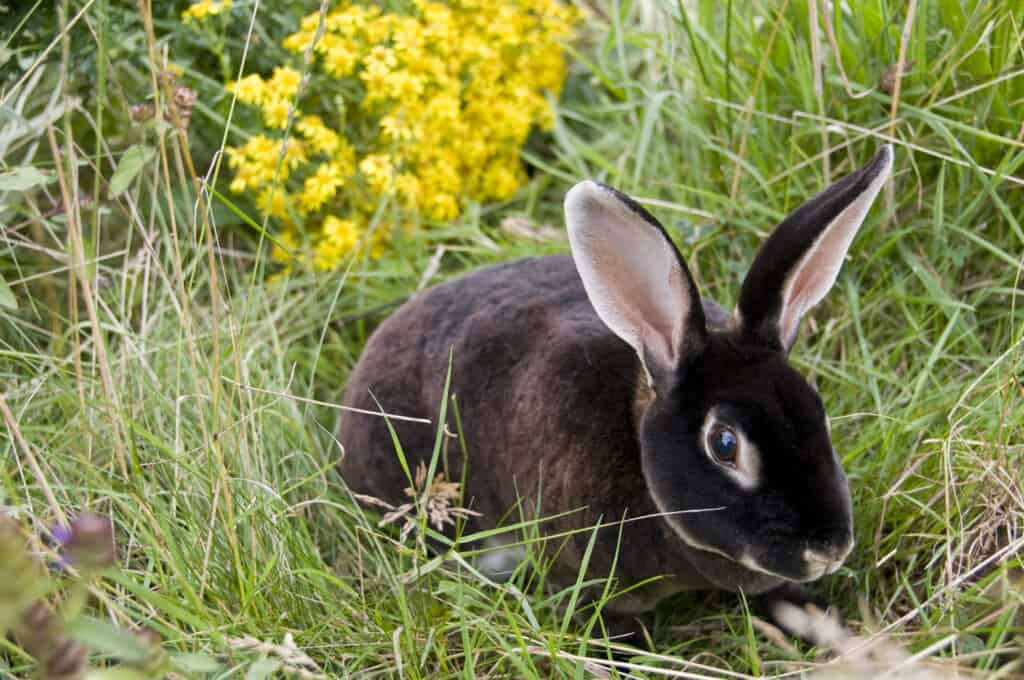
A rabbit’s digestive system requires hay and grass to work properly.
©Rob Hyrons/Shutterstock.com
When a rabbit eats a meal, the small intestines fail to digest all nutrients within the food. The large cecum contains microorganisms that rely on undigested nutrients. Fully digested nutrients exit the rabbit as hard fecal matter, but there are also soft fecal pellets known as cecotrophs. Your rabbit ingests these fecal pellets as they exit the body, which provides many additional nutrients a rabbit needs, including B vitamins.
When a rabbit’s diet doesn’t contain enough digestible fiber, it messes up the development of these cecotrophs. If your rabbit fills up on oranges and doesn’t eat enough quality hay and grass, it’s a problem. That’s why it’s so important to offer oranges in moderation and feed your rabbit a balanced diet.
Thank you for reading! Have some feedback for us? Contact the AZ Animals editorial team.

